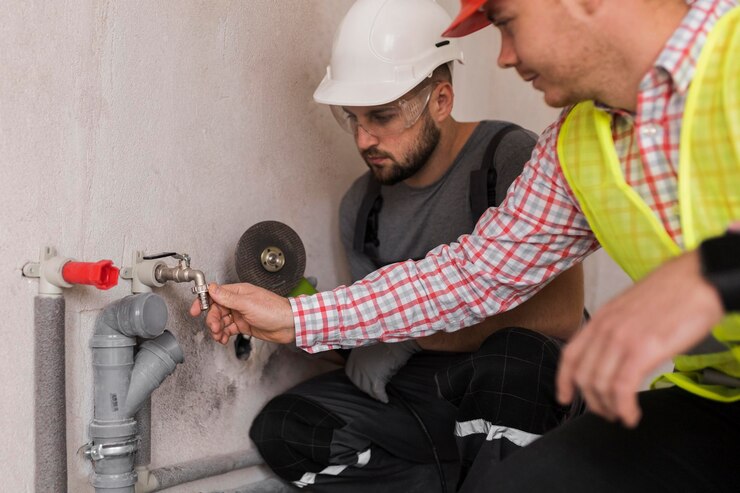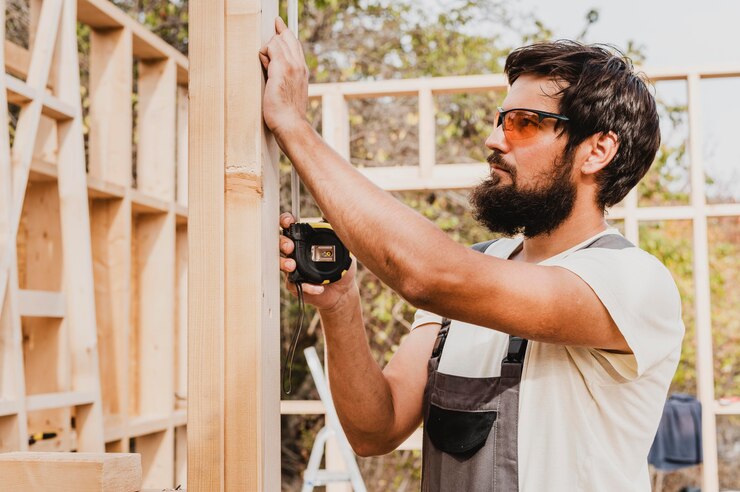Maintenance
Why Professional Boiler Maintenance is Essential for Home Safety

Introduction: The Hidden Dangers of Neglected Boilers
A boiler is one of the most crucial components of a home’s heating system, quietly working behind the scenes to keep your household warm and comfortable. However, despite its importance, the boiler is often overlooked when it comes to regular maintenance. Neglecting your boiler can lead to a host of problems, some of which can be dangerous. From carbon monoxide leaks to system failures in the dead of winter, the risks associated with an unmaintained boiler are significant.
In this article, we’ll explore why professional boiler maintenance is not just a good idea but essential for the safety of your home and family. We’ll discuss the dangers of neglect, the benefits of regular check-ups, and what you can expect from a professional boiler service.
1. The Risks of an Unmaintained Boiler
Boilers are complex systems with many components that need to be in good working order for the unit to function safely and efficiently. Without regular maintenance, small issues can go unnoticed until they develop into serious problems.
- Carbon Monoxide Poisoning
One of the most serious risks of an unmaintained boiler is carbon monoxide poisoning. Carbon monoxide is a colorless, odorless gas that can be deadly if inhaled in large quantities. A boiler that is not functioning correctly can produce and leak carbon monoxide, putting everyone in the home at risk.- Silent Danger: Because carbon monoxide is undetectable without a detector, many people are unaware of its presence until symptoms of poisoning appear. These symptoms include headaches, dizziness, nausea, and in severe cases, unconsciousness or death.
- Explosions and Fires
Boilers that are not properly maintained can also pose a risk of explosion or fire. This can occur if the pressure within the boiler builds up to dangerous levels due to a malfunctioning pressure relief valve or if a gas leak goes undetected.- Pressure Buildup: The pressure relief valve is designed to release excess pressure from the boiler, preventing dangerous buildup. If this valve fails due to lack of maintenance, the boiler could explode.
- System Failures During Winter
The middle of winter is the worst time for your boiler to fail, yet this is when it’s most likely to happen if the system hasn’t been maintained. A breakdown can leave your home without heat and hot water during the coldest months of the year, which can be particularly dangerous for vulnerable individuals like the elderly or young children.- Inconvenience and Cost: Beyond the immediate discomfort, an emergency boiler repair or replacement can be costly. Regular maintenance helps prevent such breakdowns, saving you from unexpected expenses.
2. The Benefits of Regular Boiler Maintenance
Regular boiler maintenance isn’t just about preventing disasters—it also offers several practical benefits that can improve your system’s performance and save you money in the long run.
- Improved Energy Efficiency
A well-maintained boiler operates more efficiently, using less fuel to produce the same amount of heat. This not only reduces your energy bills but also lowers your carbon footprint, making your home more environmentally friendly.- Optimal Performance: During a maintenance check, a professional will clean and adjust the components of your boiler to ensure it’s running at peak efficiency. This includes checking the burner, heat exchanger, and controls to optimize performance.
- Extended Lifespan
Boilers are a significant investment, and regular maintenance can help extend their lifespan. By catching and addressing small issues before they cause major damage, you can avoid the need for an early replacement.- Preventive Care: Just like with a car, regular tune-ups for your boiler can prevent wear and tear from turning into more serious problems. This helps keep your system running smoothly for many years.
- Consistent and Reliable Heating
A boiler that is regularly maintained is less likely to experience performance issues, ensuring that your home remains warm and comfortable throughout the heating season. Consistent maintenance helps avoid temperature fluctuations and ensures reliable hot water supply.- Peace of Mind: Knowing that your boiler is in good working order gives you peace of mind, especially during the colder months when a malfunction could be particularly disruptive.
3. What to Expect from a Professional Boiler Service
When you schedule a professional boiler maintenance service Northern Denver, the technician will perform a thorough inspection and tune-up of your system. Here’s what you can typically expect during a maintenance visit.
- Inspection and Cleaning
The first step in a boiler service is a comprehensive inspection of the entire system. The technician will check all major components, including the heat exchanger, burner, pressure relief valve, and thermostat.- Cleaning: The technician will also clean the boiler’s internal components, removing any buildup of soot, dirt, or debris that could affect performance. This cleaning process helps ensure that the boiler runs efficiently and safely.
- Checking for Leaks and Corrosion
During the inspection, the technician will look for any signs of leaks or corrosion. Leaks can lead to water damage and inefficiency, while corrosion can weaken the boiler’s structure and lead to system failure.- Pressure Testing: The technician will also test the pressure of the boiler to ensure it’s within safe limits. If the pressure is too high or too low, adjustments will be made to bring it back to the correct level.
- Testing the Controls and Safety Devices
The boiler’s controls and safety devices are critical for safe operation. The technician will test the thermostat, pressure relief valve, and other safety features to ensure they are working correctly.- Safety Valve Functionality: Ensuring that the safety valves function properly is essential to prevent dangerous pressure buildup. The technician will test these valves and replace any that are faulty.
- Efficiency Check
After the inspection and cleaning, the technician will perform an efficiency check. This involves testing the boiler’s output and comparing it to the manufacturer’s specifications to ensure it’s operating as efficiently as possible.- Recommendations: Based on the results of the efficiency check, the technician may provide recommendations for improving performance, such as adjusting the burner settings or upgrading certain components.
4. Tips for Homeowners: Maintaining Your Boiler Between Services
While professional maintenance is essential, there are also steps you can take as a homeowner to keep your boiler in good condition between service visits.
- Regularly Check the Pressure
Keeping an eye on your boiler’s pressure gauge can help you spot issues before they become serious. If the pressure is too high or too low, it could indicate a problem that needs professional attention.- Adjusting Pressure: If you notice the pressure is off, you may be able to adjust it yourself using the manual provided by the manufacturer. However, if you’re unsure, it’s best to call a professional.
- Bleed Radiators
Air can sometimes get trapped in your radiators, preventing them from heating up properly. Bleeding the radiators to release this air can improve the efficiency of your heating system and reduce strain on the boiler.- Simple Process: Bleeding radiators is a simple process that can be done with a radiator key. If you’re unsure how to do it, there are many online guides and videos available to help.
- Keep the Area Around the Boiler Clear
Ensure that the area around your boiler is free from clutter and flammable materials. This not only allows for proper ventilation but also makes it easier for a technician to access the boiler during service visits.- Ventilation: Good ventilation is crucial for the safe operation of your boiler. Make sure that vents are not blocked and that there’s enough space around the boiler for air to circulate.
- Listen for Unusual Noises
Boilers typically make some noise while operating, but if you notice any unusual sounds, such as banging, gurgling, or whistling, it could be a sign of a problem. Unusual noises often indicate issues like air in the system, low water pressure, or a failing component.- Early Intervention: Addressing these noises early can prevent more serious issues from developing. If you hear anything out of the ordinary, it’s best to schedule a professional inspection.
Conclusion: Prioritizing Safety Through Regular Boiler Maintenance
Boilers play a critical role in keeping your home warm and comfortable, but they also come with inherent risks if not properly maintained. Regular professional maintenance is essential for ensuring that your boiler operates safely, efficiently, and reliably. By investing in routine check-ups, you can prevent dangerous situations like carbon monoxide leaks, reduce the likelihood of breakdowns, and extend the life of your system.
As a homeowner, taking proactive steps to care for your boiler between professional services will further enhance its performance and safety. Remember, a well-maintained boiler is not only a smart investment in your home’s comfort but also in your family’s safety. Make boiler maintenance a priority, and enjoy the peace of mind that comes with knowing your heating system is in good hands.
Maintenance
Comprehensive Guide to Sewer System Care and Maintenance

Introduction
The sewer system is an essential yet often overlooked component of any home. It is responsible for transporting wastewater away from your property, ensuring that your living environment remains clean, sanitary, and free from unpleasant odors. However, without proper care and maintenance, sewer systems can become clogged or damaged, leading to serious problems that are costly to repair.
This guide will provide you with essential tips on how to properly care for and maintain your sewer system, helping you prevent issues such as blockages, backups, and expensive repairs. By understanding the basics of sewer system maintenance and taking proactive steps, you can ensure the longevity and reliability of this crucial part of your home’s infrastructure.
Understanding the Basics of Your Sewer System
Before diving into maintenance tips, it’s important to have a basic understanding of how your sewer system works. In most homes, the sewer system consists of a series of pipes that transport wastewater from your sinks, toilets, showers, and appliances to a municipal sewer line or septic tank.
- Main Sewer Line
The main sewer line is the large pipe that carries wastewater from your home to the municipal sewer system or septic tank. This line is usually buried underground and connects to smaller drain lines inside your home. - Drain Lines
Drain lines are smaller pipes that carry wastewater from individual fixtures, such as sinks, toilets, and showers, to the main sewer line. These pipes are typically located within the walls and floors of your home. - Vent Pipes
Vent pipes are another important component of your sewer system. These pipes allow air to enter the plumbing system, which helps wastewater flow smoothly through the drain lines. They also prevent sewer gases from entering your home.
Understanding these basic components will help you identify potential issues and take the necessary steps to maintain your sewer system effectively.
Preventing Sewer System Blockages
Blockages are one of the most common issues homeowners face with their sewer systems. They can lead to slow drains, backups, and even sewage spills. Fortunately, many blockages can be prevented with proper care and maintenance.
- Be Mindful of What You Flush
Toilets are designed to handle human waste and toilet paper—nothing more. Flushing non-biodegradable items such as wipes, feminine hygiene products, paper towels, and dental floss can cause severe blockages in your sewer lines.- Common Offenders: Items like “flushable” wipes, which are often marketed as safe for plumbing, do not break down as easily as toilet paper and can accumulate in your pipes, leading to clogs. Always dispose of these items in the trash rather than flushing them down the toilet.
- Properly Dispose of Grease and Oils
Grease and oils are major contributors to sewer line blockages. When poured down the drain, they can solidify and stick to the inside of your pipes, gradually building up and causing clogs.- Alternative Disposal Methods: Instead of pouring grease down the drain, collect it in a container and dispose of it in the trash. For smaller amounts of grease, you can wipe it off pans and dishes with a paper towel before washing.
- Use Drain Screens
Installing drain screens in your sinks, showers, and tubs can help catch hair, food particles, and other debris before they enter your pipes. Regularly cleaning these screens will prevent materials from accumulating and causing blockages.- Regular Cleaning: Even with drain screens in place, it’s important to regularly clean out any trapped debris. This simple step can go a long way in keeping your drains clear and your sewer system functioning properly.
Regular Maintenance for a Healthy Sewer System
Regular maintenance is key to preventing problems and ensuring that your sewer system operates efficiently. Here are some practical tips for maintaining your system:
- Schedule Regular Inspections
One of the best ways to maintain your sewer system is by scheduling regular inspections with a professional plumber. Professional plumbers in Dallas can identify potential issues, such as tree root intrusion or pipe corrosion, before they become serious problems.- Video Inspections: Many plumbing companies offer video inspections, which involve inserting a small camera into the sewer line to check for blockages, cracks, and other issues. This non-invasive method provides a clear view of the condition of your pipes and helps pinpoint the exact location of any problems.
- Consider Tree Placement
Tree roots are a common cause of sewer line damage. As trees grow, their roots can extend toward your sewer line in search of water and nutrients. Over time, these roots can penetrate and damage the pipes, leading to blockages and leaks.- Safe Planting Practices: When planting trees, be mindful of their proximity to your sewer lines. Choose tree species with less aggressive root systems, and plant them at a safe distance from your plumbing. If you already have trees near your sewer line, consider having a professional install a root barrier to protect your pipes.
- Keep an Eye on Water Flow
Pay attention to how quickly water drains from your sinks, tubs, and toilets. Slow drainage is often an early sign of a developing blockage. If you notice slow drainage in multiple fixtures, it may indicate a blockage in the main sewer line.- Early Detection: Addressing slow drains early can prevent a complete blockage and reduce the risk of a sewage backup. Use a plunger or drain snake to clear minor clogs, but if the problem persists, it’s best to call a professional for a thorough cleaning.
- Avoid Using Chemical Drain Cleaners
While it may be tempting to use chemical drain cleaners to clear a clog, these products can do more harm than good. The harsh chemicals in these cleaners can corrode your pipes over time, leading to leaks and other damage.- Safer Alternatives: Opt for mechanical methods, such as a plunger or drain snake, to clear clogs. If you must use a chemical cleaner, choose an enzyme-based product that is gentler on your pipes and more environmentally friendly.
What to Do in Case of a Sewer Backup
Despite your best efforts, sewer backups can still occur. Knowing how to handle a backup can minimize damage and reduce the risk of health hazards.
- Turn Off Water Supply
If you experience a sewer backup, the first step is to stop the flow of water by turning off the main water supply to your home. This prevents additional water from entering the sewer system and exacerbating the problem.- Locate the Shut-Off Valve: Make sure you know where your home’s main shut-off valve is located so you can quickly access it in an emergency.
- Avoid Using Water Fixtures
During a sewer backup, avoid using any water fixtures, including sinks, toilets, and showers. Any water sent down the drains can worsen the backup and potentially cause contaminated water to overflow into your home.- Wait for Professional Help: It’s crucial to wait for a professional plumber to assess and fix the problem. Trying to use fixtures during a backup can lead to further damage and health risks.
- Call a Professional Plumber Immediately
Sewer backups require immediate attention from a professional plumber. They have the tools and expertise to diagnose the issue, remove blockages, and restore your sewer system to proper working order.- Emergency Services: Many plumbing companies offer 24/7 emergency services, so don’t hesitate to call for help, even outside of regular business hours. Prompt action can prevent further damage and reduce the cost of repairs.
Long-Term Solutions for Sewer System Health
In addition to regular maintenance and prompt attention to issues, there are long-term strategies you can implement to keep your sewer system healthy.
- Upgrade Old Pipes
If your home has an older plumbing system, consider upgrading to modern materials such as PVC or ABS pipes. These materials are more resistant to corrosion and root intrusion, providing a longer-lasting solution for your sewer system.- Pipe Replacement: Replacing old pipes can be a significant investment, but it can save you money in the long run by reducing the risk of leaks, blockages, and other costly repairs.
- Install a Backwater Valve
A backwater valve is a device that prevents sewage from backing up into your home during heavy rains or sewer system overloads. Installing this valve can provide added protection and peace of mind, especially if you live in an area prone to flooding.- Professional Installation: Backwater valves should be installed by a professional plumber to ensure proper function and compliance with local building codes.
Conclusion
Maintaining your sewer system is essential for the overall health and safety of your home. By taking proactive steps to prevent blockages, scheduling regular inspections, and addressing issues promptly, you can keep your sewer system functioning smoothly and avoid costly repairs.
Remember, your sewer system is a critical part of your home’s infrastructure. Giving it the care and attention it deserves will not only protect your property but also ensure a clean and healthy living environment for you and your family. Whether it’s regular maintenance or emergency repairs, having a trusted plumbing company on call is key to maintaining a reliable and efficient sewer system.
Maintenance
The Benefits of Regular Maintenance for Wood Fences Installed by Contractors

Maintaining a wood fence is crucial for ensuring its longevity and aesthetic appeal. Wood fences, while adding charm and value to a property, require consistent upkeep to combat natural wear and tear. Regular maintenance, performed by professional contractors, helps preserve the integrity and appearance of wood fences over time. We will explore the various benefits of this routine care, focusing on how it extends the fence’s lifespan, enhances its visual appeal, and prevents costly repairs. Understanding these advantages can help homeowners appreciate the importance of timely and efficient maintenance practices.
Extended Lifespan of the Fence
One of the primary benefits of regular maintenance for wood fences is the extension of their lifespan. As a natural material, wood is susceptible to environmental factors such as moisture, UV rays, and pests. Regular inspections and maintenance, including staining, sealing, and treating for pests, can significantly delay the onset of deterioration. Contractors can apply protective coatings that shield the wood from moisture and sunlight, reducing the risk of warping, cracking, and fading. By proactively addressing these issues, homeowners can avoid premature replacement and maximize the longevity of their wood fences, ensuring they continue to serve their purpose effectively for many years.
Enhanced Visual Appeal
A well-maintained wood fence not only functions better but also looks more attractive. Regular upkeep involves cleaning, staining, and painting, which enhance the wall’s overall appearance. Over time, wood fences can accumulate dirt, mold, and mildew, which can mar their appearance. Professional contractors can perform thorough cleanings and apply fresh coats of stain or paint, revitalizing the fence’s color and finish. This maintenance not only preserves the fence’s visual appeal but also boosts the curb appeal of the entire property. An aesthetically pleasing fence can positively impact the home’s look and value.
Prevention of Costly Repairs
Preventing small issues from escalating into major problems is another significant advantage of regular fence maintenance. Routine inspections by F&W Fence Co. Inc. experts
can identify potential issues such as loose posts, damaged boards, or early signs of pest infestation. Addressing these minor concerns promptly can prevent them from developing into serious problems requiring expensive repairs or replacements. For example, treating wood for termites or rot before it causes significant damage can save homeowners from the high costs associated with extensive repairs. Regular maintenance, therefore, not only preserves the fence’s functionality but also helps avoid unexpected financial burdens.
Improved Structural Integrity
Various factors, including weather conditions and ground shifts, can compromise the structural integrity of a wood fence. Regular maintenance helps ensure that the fence remains sturdy and secure. Professional contractors can check for and address issues such as leaning posts, weakened joints, and rusted hardware. Reinforcing and repairing these elements helps maintain the fence’s strength and stability, preventing potential safety hazards. Ensuring that the fence is structurally sound also reduces the likelihood of accidents or damage caused by a compromised fence, thereby providing peace of mind to homeowners.
Increased Property Value
Maintaining a wood fence can positively impact a property’s value. Prospective buyers often look for well-maintained features when evaluating a home. A fence in good condition, both structurally and aesthetically, can enhance the property’s appeal and market value. By investing in regular maintenance, homeowners can ensure that their fence contributes to their property’s overall value. This investment not only enhances the enjoyment of the home while living there but also provides a favorable return if the property is put on the market.
Sustainable and Environmentally Friendly
Regular maintenance of wood fences contributes to sustainability and environmental responsibility. Wood is a renewable resource, and proper care extends the fence’s life, reducing the need for replacement and conserving resources. Additionally, by addressing issues such as rot or pest damage early, homeowners can avoid the disposal of large sections of wood that would otherwise end up in a landfill. Maintaining and repairing the existing fence is an environmentally friendly choice that supports the longevity of natural materials and minimizes waste.
Cost-Effective Investment
Regular maintenance of wood fences is a cost-effective investment for homeowners. While some may view ongoing upkeep as an additional expense, it is often more economical than the costs of significant repairs or replacements. By addressing minor issues early and performing routine tasks such as cleaning, staining, and sealing, homeowners can prevent significant damage that might otherwise lead to expensive repairs. Furthermore, many maintenance tasks, such as applying a new coat of paint or stain, are relatively inexpensive compared to replacing entire fence sections. Over time, the savings from avoiding large-scale repairs or replacements make regular maintenance a prudent financial choice, ensuring that the wood fence remains functional and aesthetically pleasing without incurring unnecessary costs.
Regular maintenance of wood fences installed by contractors offers numerous benefits, including an extended lifespan, enhanced visual appeal, prevention of costly repairs, improved structural integrity, increased property value, and environmental sustainability. Routine care ensures that the fence remains functional, attractive, and valuable over time. By prioritizing regular maintenance, homeowners can enjoy the long-term advantages of their wood fences and avoid the challenges associated with neglect. Investing in consistent upkeep is a practical and rewarding approach to preserving the charm and functionality of wood fencing for years to come.
-

 GENERAL1 year ago
GENERAL1 year agoDiscovering the Artistic Brilliance of Derpixon: A Deep Dive into their Animation and Illustration
-

 Posts1 year ago
Posts1 year agoSiegel, Cooper & Co.
-

 Lifestyle1 year ago
Lifestyle1 year agoPurenudism.com: Unveiling the Beauty of Naturist Lifestyle
-

 Lifestyle1 year ago
Lifestyle1 year agoBaddieHub: Unleashing Confidence and Style in the Ultimate Gathering Spot for the Baddie Lifestyle
-

 HEALTH1 year ago
HEALTH1 year agoTransformative Health Solutions: Unveiling the Breakthroughs of 10x Health
-

 Entertainment1 year ago
Entertainment1 year agoGeekzilla Podcast: Navigating the World of Pop Culture, Gaming, and Tech
-

 Entertainment1 year ago
Entertainment1 year agoKhatrimaza Unveiled: Exploring Cinematic Marvels and Entertainment Extravaganza
-

 BUSINESS1 year ago
BUSINESS1 year agoUnlocking the Secrets to Jacqueline Tortorice Remarkable Career and Accomplishments
